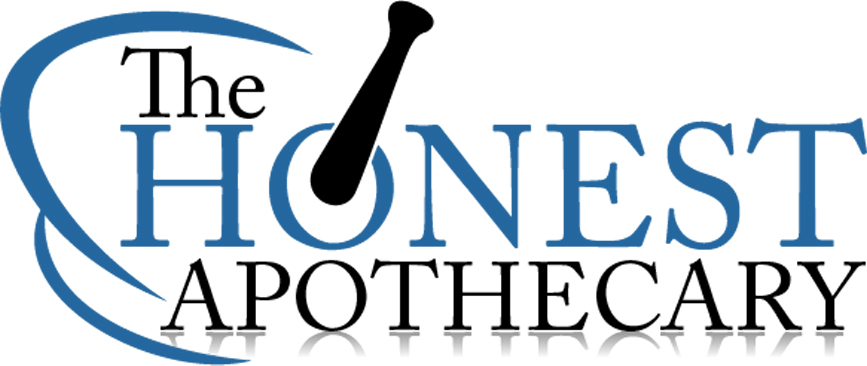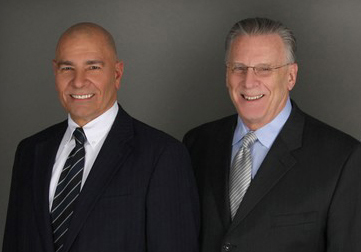An independent pharmacy or chain of pharmacies is likely to be the single biggest investment of an owner’s life. When multiple owners or interested parties are involved, nothing is more important than planning for unexpected events. Even expected transitions such as retirement or the transfer of the business needs to be properly prepared for. That’s why getting good advice from experienced professionals is so critical. I’m grateful that Thomas Craft and Lawrence Barrett of the Independent Pharmacy Consulting Group have agreed to share some of their experience in this area with my readers.
This is the 3rd in a 6 part series about preparing a buy-sell agreement. The first post dealt with answering the question of Why Independent Pharmacists Need a Buy-Sell Agreement. The second post opened up the subject of the Types of Buy-Sell Agreements that exist. This post tackles the very important question surrounding the valuation of the pharmacy in a buy-sell agreement.
Please join me in welcoming back Lawrence and Thomas to The Honest Apothecary. If you have any specific questions for them I recommend you reach out to them at their OH office at (216) 591-2392.
Six Things an Independent Pharmacist Should Consider Before Preparing a Buy-Sell Agreement
Our third installment looks at how the price of the stock is determined when using a Buy-Sell Agreement to ensure a fair outcome to the departing shareholder and family as well as the remaining shareholder or shareholders.
Determining the Price or Formula for Your Buy-Sell Agreement
A Buy-Sell Agreement requires establishing a set price or price-setting formula to be used when a triggering event such as the owner’s death or disability occurs. This price or formula should be determined when creating your Buy-Sell Agreement. Without an established and agreed-upon price or formula, you invite uncertainty and increase the likelihood of disagreements and litigation if a triggering event occurs.
While the method used may be simple or a combination of methods, the price or formula should be fair, reasonable, easily understood and workable. You never know which side of the calculation you or your family may be party to. There are primarily four methods that can be used to set the price of your pharmacy in your Buy-Sell Agreement – book value, agreed value, appraised value and formula value. We will touch briefly on each method. Further research is required before making a decision on the method or combination of methods to use.
Book Value
Assets less liabilities define book value in its simplest form. This method works best where a business is an asset holding company such as an investment company. It can also be beneficial for a one-person corporation if the business is worth its liquidation value or the business is highly competitive but only marginally profitable and its past earnings record is unreliable to measure future profits. Independent pharmacies with goodwill as the largest asset can also benefit from this method.
Raw book value, however, should not be used as the stand alone formula for determining price. The following book values may not reflect fair market value and should be adjusted:
- Assets carried at cost likely bear little resemblance to actual value.
- Assets depreciated at a rate in excess of their true value decline or completely written off but still possessing value.
- Assets such as goodwill or franchises may be carried on the books at a nominal amount or not reflected at all.
- Inventory may be obsolete or understated and accounts receivable uncollectable.
Adjustments may also be necessary for a pharmacy with a poor liquidity position, experiencing a shortage of working capital, or burdened with substantial long-term indebtedness. Finally, book value does not recognize intangibles such as location or reputation.
Agreed Value
The certainty of stated price minimizes disputes between parties, eliminates accounting or appraisal fees, and allows owners to plan better for their families and heirs. However, simple and easy are not always appropriate. A per-share value of the pharmacy is pre-determined and will be paid when a triggering event occurs.
Problems such as an outdated value can arise after a number of years if the pharmacy grows or shrinks. In addition, it is difficult to anticipate future changes or situations that may occur and affect the stated price. Finally, in a family pharmacy business, such a predetermined value will not stand up to IRS scrutiny for gifting or estate purposes.
To avoid a stale price, a schedule needs to be established for periodic review and reevaluation of the price and procedures if a triggering event occurred without reevaluation occurring.
Appraised Value
Expensive and time consuming, this method requires an appraisal be made within a specified time after the valuation date by a qualified independent third-party appraiser using one of two possible methods.
Independent Appraiser Approach. One appraiser is hired by the departing owner or owner’s estate and another appraiser is hired by the remaining owners or buyer. If the two independent appraisers cannot come to terms within a given period of time, they recommend that a third appraiser be hired. The price of the pharmacy becomes the average value found from all three appraisers.
Federal or State Estate Tax Valuation. If a federal or state estate tax return must be filed, this method may be used to determine value. It does, however, come with ethical and problematic conflict concerns. On one hand, an estate’s executor wants to keep the value of the pharmacy as low as possible to minimize any estate tax liability but, at the same time, wants as high a value as possible to increase the amount received by the family or estate.
Under both methods, uncertainty of outcome is another reason why neither method may be beneficial in using this method as the price setting mechanism.
Formula Valuation
There are many formula approach variations. None by itself is perfect or universally accepted. Here the approach is similar to if you were valuing your pharmacy to sell to a third party. One approach is EBITDA (Earnings Before Interest, Taxes, Depreciation and Amortization) with additional adjustments for excessive salaries, rents, or other unusual operating expenses. Other approaches include capitalization of earnings, and number of scripts plus inventory.
Considerations in Setting a Price
High valuations result in the departing owner or family receiving more cash and the pharmacy or remaining owners paying more for the stock. In a Cross-Purchase Agreement, the remaining owners receive a higher income tax basis in the stock. Lower valuations result in less cash payable to the departing owner or heirs and less outlay by the pharmacy or remaining owners. Owners must always look at both sides because they can never be certain whether they will be the sellers or buyers in a Buy-Sell Agreement.
Next
In our fourth installment, we will look at the most popular methods for funding an agreement to ensure there is not a cash crunch for the pharmacy or inability to provide funds to the family of a deceased shareholder in need of paying taxes or other costs.
Lawrence C. Barrett and Thomas H. Craft are registered representatives of Lincoln Financial Advisors Corp.
Securities offered through Lincoln Financial Advisors Corp., a broker/dealer. Member SIPC. Investment advisory services offered through Sagemark Consulting, a division of Lincoln Financial Advisors, a registered investment advisor. Insurance offered through Lincoln affiliates and other fine companies. Neither Lincoln Financial Advisors nor its representatives offer legal or tax advice. You may want to consult a legal or tax advisor regarding this information as it relates to your personal circumstances. 28601 Chagrin Boulevard, Suite 300, Cleveland, OH 44122. CRN-1036498-101414
Independent Pharmacy Consulting Group, LLC is not an affiliate of Lincoln Financial Advisors Corp.
Buy-Sell Agreement Independent Pharmacy Consulting Group Lawrence Barrett Pharmacy Valuation Thomas Craft
Last modified: April 17, 2023
















